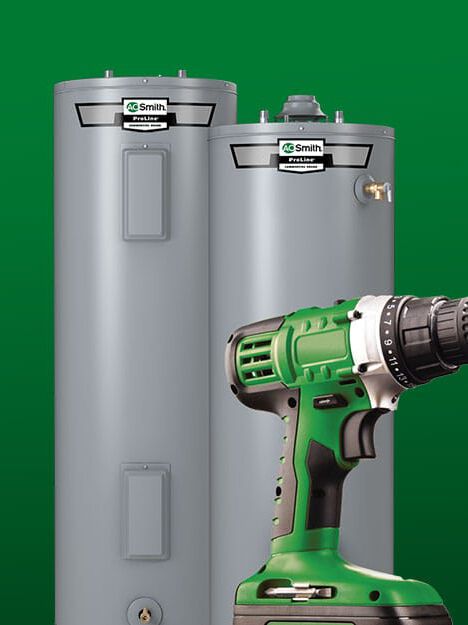
What to Do When Your Hot Water Heater Is Making Noises
Table of Contents
Drip, bang, screech, pop — your water heater is making noise again. When appliances go rogue, the combination of unwanted sounds and poor performance can be extremely frustrating. To help you get rid of cold showers and rattling pipes, we’ve put together this guide to water heater problems. We give you everything you need to get to the bottom of those hisses and hums.
If a repair isn’t enough to restore your service, we’ll help you decide what water heater replacement to buy, where to get it, and how to prolong the lifespan of your new purchase.
5 Water Heater Sounds You Should Know
You can tell a lot about the health of your water heater simply by closing your eyes and focusing on your ears. Everything from a subtle crackling noise to a loud, obnoxious pop is a symptom of whatever issue is hidden underneath.
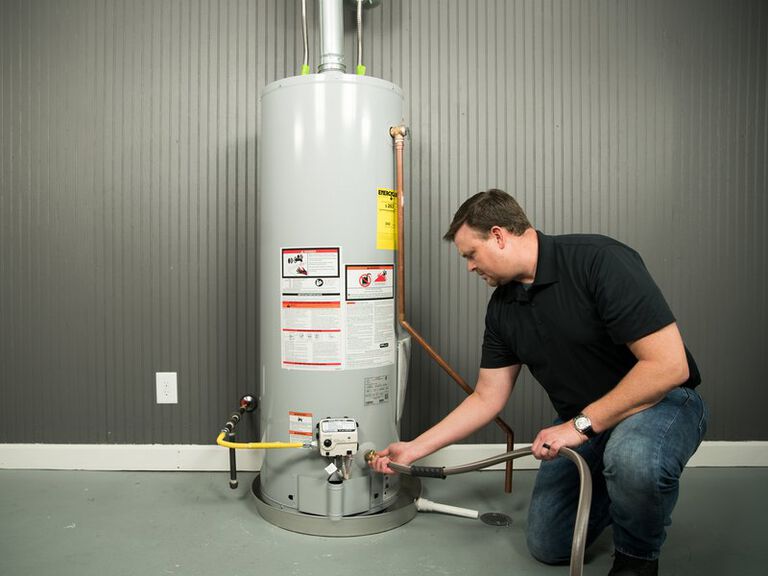
Banging, Knocking or Hammering Sounds
No one likes it when a roommate or family member starts slamming doors. It’s just as annoying when you hear knocking or hammering sounds from your water heater. Even though the banging can be disturbing — especially if it kicks in at night — this probably isn’t a disastrous problem, nor is it an expensive fix.
If your water heater is knocking, it’s likely water slamming into the heater’s internal shutoff valves too quickly. Installing a water hammer arrestor adds a bit of shock absorption to your heater. This is a pretty easy installation, and you should hear an immediate difference in the noise level.
Popping Sounds
A water heater making popping noises could be harboring sediment that’s interfering with the natural flow of water and steam. As sediment builds up at the bottom of your water tank, it traps steam bubbles that have to fight to escape. When they finally break free, you hear a loud pop, just like you hear when your pasta pot is roaring and ready for you to add a handful of spaghetti.
Because your tank’s heating element is at the bottom of the unit, this layer of sediment also prevents water from warming efficiently.
The best cure for a popping water heater is to flush the tank and eliminate all that sediment. You’ll need to drain the water from your tank and flush it with cold water (more instructions on that process below).
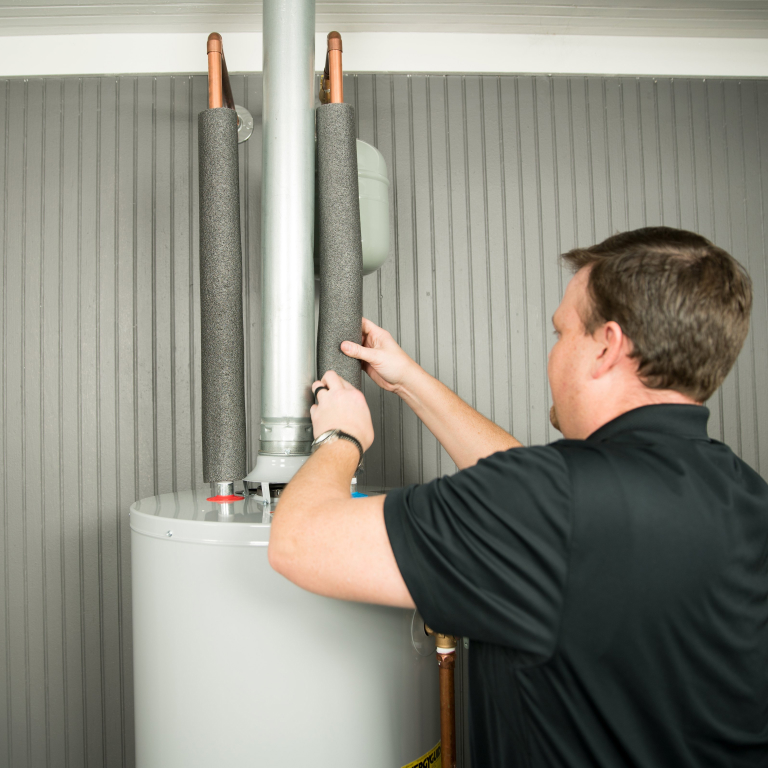
Crackling Sounds
A water heater making crackling noises is likely suffering from the same sediment problems associated with popping sounds. But there’s a second possibility, too — aluminum hydroxide. These colorful, jelly-like beads are easy to spot thanks to their telltale shape and green, blue and gray hues. If they’re in your tank, it’s a sign your aluminum anode rod is reacting with excess chlorine in your water.
Whether the problem is sediment or aluminum hydroxide, you’ll need to flush your tank. If you see those beads coming out with the water during the draining process, consider switching from an aluminum rod to an aluminum zinc alternative.
Screeching, Whistling or High-Pitched Sounds
Is your water heater making noises that sound like a hungry owl or a tea kettle that’s reached its boiling point? Or perhaps your water heater is making a hissing sound that’s leading you to check under couches for a stray black cat. These screeches and whistles could be caused by several factors, depending on the type of water heater you have.
- If your water heater has a blower, this may be a case of a dirty blower wheel or obstructed vent. Clean the vent and blower wheel, ensure they’re clear of debris and moving freely, and see if the sound persists.
- Screeching sounds could also be traced to failed bearings in a blower motor. This more expensive fix requires a new blower motor and professional intervention.
- If you have an electric water heater, you may have a bad heating element. Call for a quote on a replacement element to quiet your heater and restore hot water.
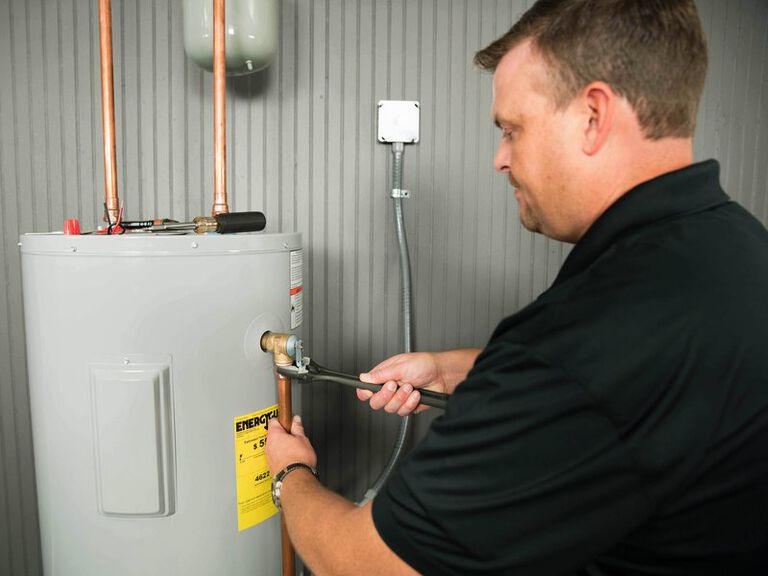
Humming Sounds
Humming or buzzing sounds are often a symptom of loose components vibrating and making noise as the water heater runs. If you suspect this is the case, it’s time for a careful inspection of your entire unit. Turn off the water heater and wait for it to cool. Then work from top to bottom, tightening screws and pressing on joints to spot any unexpected gaps or movement. Anything beyond basic tightening, such as a rusted joint or weak panel, should be left to a professional.
If you have an ultra-low NOx water heater, humming noises may indicate a damaged burner. Contact tech support to find out what you can do yourself or if you need to schedule a repair call.
Troubleshooting Tips: What to Do When Your Hot Water Heater Is Making Noise
If you’ve noticed your water heater making knocking noises, hissing or otherwise acting up, there are some things you can try to help resolve the situation.
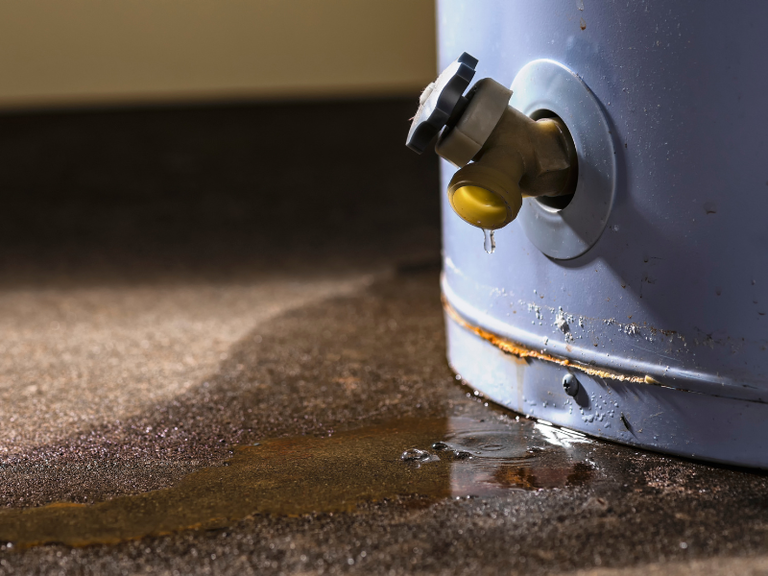
Flush the Tank
Sometimes, you suspect sediment buildup is the culprit behind your water heater woes, but you’re not entirely sure. Flushing your tank can be helpful both diagnostically (visible sediment that comes out with the flush is a definite red flag) and as a solution for random noises. Since there are few downsides other than the potential for mess and the need for a bit of elbow grease, feel free to try a flush any time.
- Turn off the water heater.
- Turn off the cold water supply.
- Wait until the water in your tank is cool.
- Connect the drain valve to a water hose.
- Place the other end of the water house in a receptacle — preferably one with drainage (e.g., bathtub or utility sink).
- Open the drain valve and drain the tank.
- Turn on the cold water supply to completely flush out the tank and any lingering sediment.
- Clean up any spillage, disconnect the hose, close the drain valve and refill your water heater.
Pro tip: Turning on a hot water faucet somewhere in your house while you flush your tank can help prevent water vacuums from forming inside your pipes. For this pressure-release trick to work, the faucet should be located higher in your home (like in a second-story bathroom) than the location of your water heater.
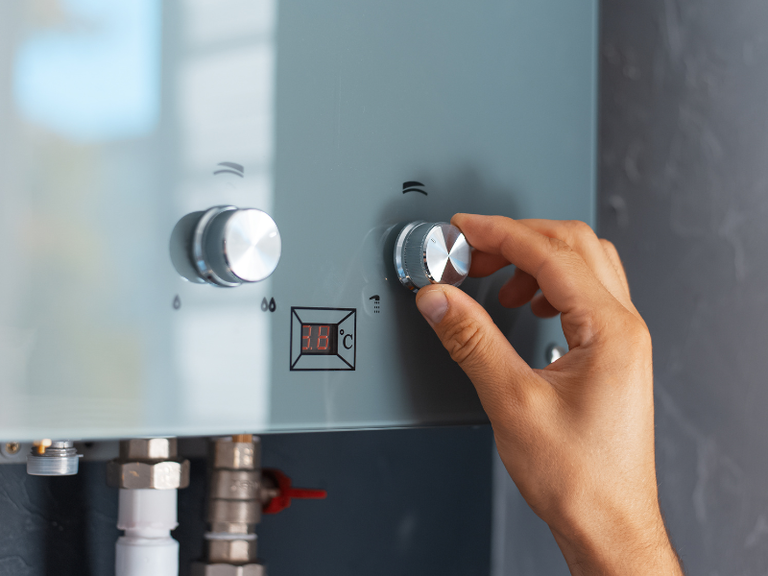
Adjust Your Thermostat
Occasionally, your water heater isn’t making any weird noises, but it’s still not performing the way you expect it to. Your morning shower is more icy than steamy, washing dishes feels like your dipping plates and cups in a creek, and you can barely stand to soap up your hands.
The lack of heat could be an indication of a bigger problem. But it could also just be a matter of adjusting your thermostat. Your water heater’s temperature should be set warm enough to be comfortable but not so high you put yourself or loved ones at risk of being scalded. The U.S. Department of Energy suggests setting your water heater to 120 degrees Fahrenheit to wash and bathe safely while also saving energy and utility costs.
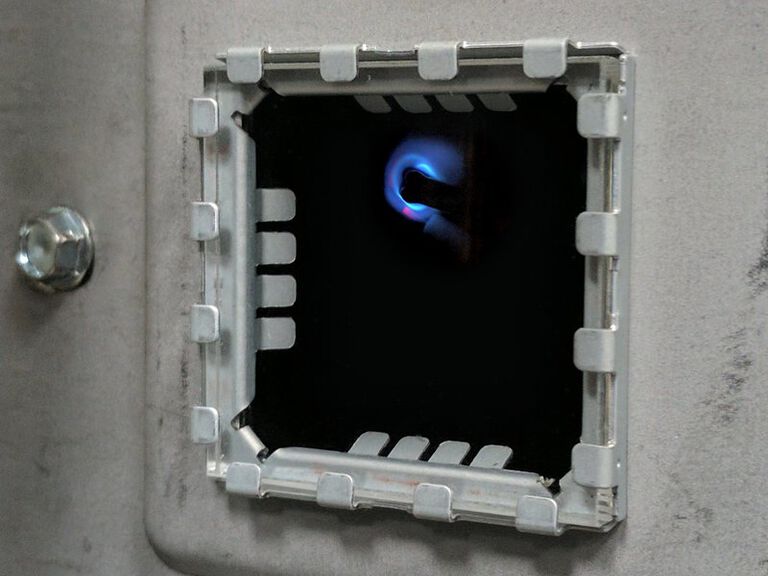
Check the Pilot Light
The pilot light in your water heater ignites the gas burner that heats the water you use around your house. In most cases, the pilot light is meant to stay perpetually lit. If it goes out, there’s no ignition mechanism to kick-start the heating process.
You can troubleshoot pilot light problems by looking at the spot where the light should be. This is usually through a little window on the bottom of your water heater. Healthy pilot lights should be blue and steadily lit. A light that’s yellow or red isn’t hot enough, and if it’s flickering, you may have interference from a nearby draft or a buildup of dirt and grime.
If you need to relight the pilot, follow the manufacturer’s instructions, which are often printed on the unit.
If the pilot doesn’t relight, you can check the connection, double-check your gas supply, and consider a broken thermocouple or electrode. Because gas and fire are involved, anything beyond a basic relighting may be best left to the professionals.
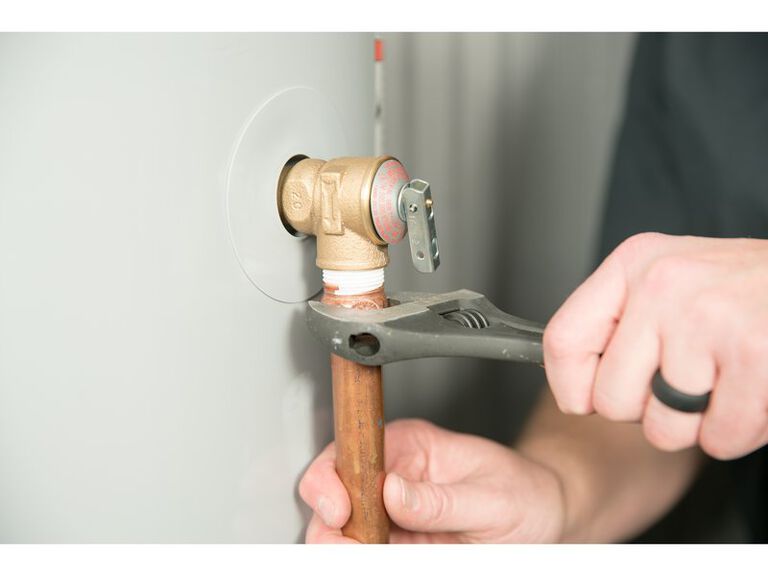
Look for Leaks
Your water heater making loud noises is a strong auditory sign that something’s amiss. But there could be visual signs indicating a problem — and the source of that problem — if you know where to look. Luckily, you won’t have to look far. Check around the base of your water heater and near any connecting pipes to see if there's dripping or pooled water.
Water dripping from a connection might be easy to address. Tighten the connection or replace fault valves as needed. Leaks due to a cracked or corroded water heater tank are a much bigger deal. Your tank may also spring a leak if you have an improperly installed temperature and pressure relief valve or if your anode rod has worn out and stopped protecting your tank from corrosion.
Sometimes, there are several reasons for a leak. Contact a local plumbing contractor to do a thorough inspection and help you figure out your next steps.
The Importance of Preventative Maintenance
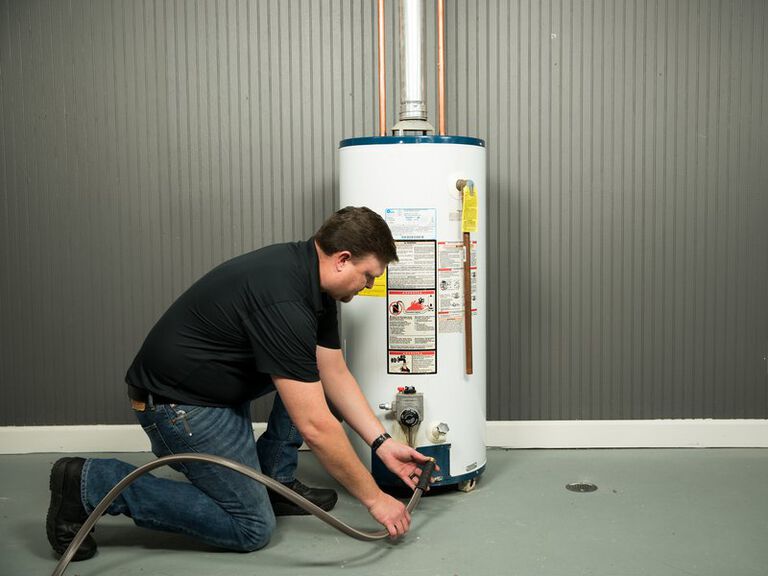
Preventative maintenance can stop issues in their tracks long before your water heater makes humming noises or starts spitting out tepid water. In the same way you take your car in for regular tune-ups or see your doctor for an annual physical, your water heater needs TLC to stay in good running order.
- Flush your water heater at least once a year to get rid of sediment. Flush it more often if you have hard water, older pipes or lots of buildup when you do the once-yearly flushing.
- Check the anode rod for signs of wear and tear and replace it if necessary. These rods usually only last about 5 years but could dissipate sooner depending on your water. If there’s significant corrosion, you may need to replace the rod much sooner.
- Insulate the pipes that feed water from the outside world to your unit and from your unit to the house. This helps preserve water temperature, prevent frozen pipes in winter, and could lower your overall energy costs.
- Schedule regular professional inspections. Unless you’re a trained tech, a professional will always notice things you don’t, which could lead to quick, affordable repairs now instead of costly and time-consuming projects later on.
When to Seek Professional Help
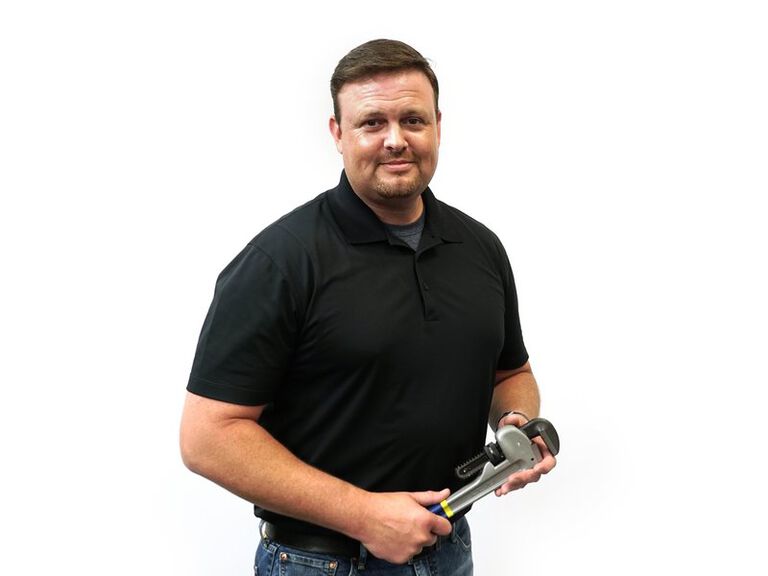
When your research goes from basic questions like, “Why is my water heater making noise?” to more complex queries that feel beyond your knowledge or skill level, it’s probably time to call in a professional.
They may ask you a series of questions to help them find the root of the problem, such as:
- What do the noises sound like?
- How long has this been happening?
- Is the water heater making noise when the water is off?
- Is there anything that makes the noises worse/louder?
- Is there anything that makes the noises stop?
- When was your hot water heater last serviced?
You should always seek professional assistance if you aren’t sure what’s wrong with your water heater or if the problem or potential fixes are beyond your ability as a DIYer. Complex issues and electrical problems are always best left to the experts to avoid injury and keep a small repair from spiraling into a larger one.
Problems With Your Water Heater?
If your water heater problems have gone beyond the realm of DIY or you just want a second opinion, we’re here to help. Find an approved water heater repair and service provider in your area and schedule service today.
Problems With Your Tankless Water Heater?
Are you running into problems with your tankless water heater? If weird noises or poor performance are getting you down, look through our support resources for maintenance and troubleshooting guides or contact an A.O. Smith rep.
Want to Upgrade Your Water Heater?
When it’s time to upgrade your water heater, it’s important to do your research and get recommendations from a professional. A.O. Smith works with a nationwide network of authorized independent contractors who can install your new tank or tankless water heater.
How to Get the Right Water Heater for Your Needs
Choosing the right water heater can be a complex and stressful decision. Considerations like the size of your home, how much hot water you need, how you’ll power your tank, the space you have available for a new unit and sustainability concerns will all come into play.
The best way to ensure you’re buying the perfect water heater is to contact an A.O. Smith rep or use our handy water heater selector tool to get a fast recommendation online.
Learn More About Tankless Water Heaters
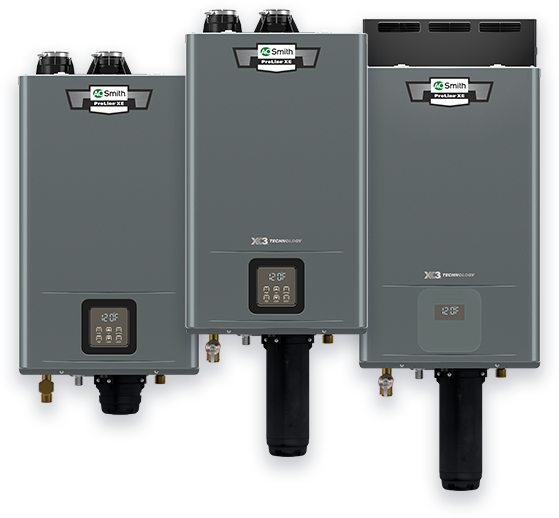
To make the most of your water heater upgrade, check out the latest information on our popular tankless water heaters.
Gas Tankless
Gas tankless water heaters use propane and natural gas. Their compact design makes it easy to install a heater in tighter spaces, like a nook in your garage or a spare closet. Because water comes directly from the pipes and is heated as needed, you won’t use extra energy to heat a reservoir of water 24/7.
Electric Tankless
Electric tankless water heaters provide a continuous supply of hot water while still fitting in tight spaces. While gas tankless units need space to safely vent, electric units can be in enclosed areas and are more affordable to install.